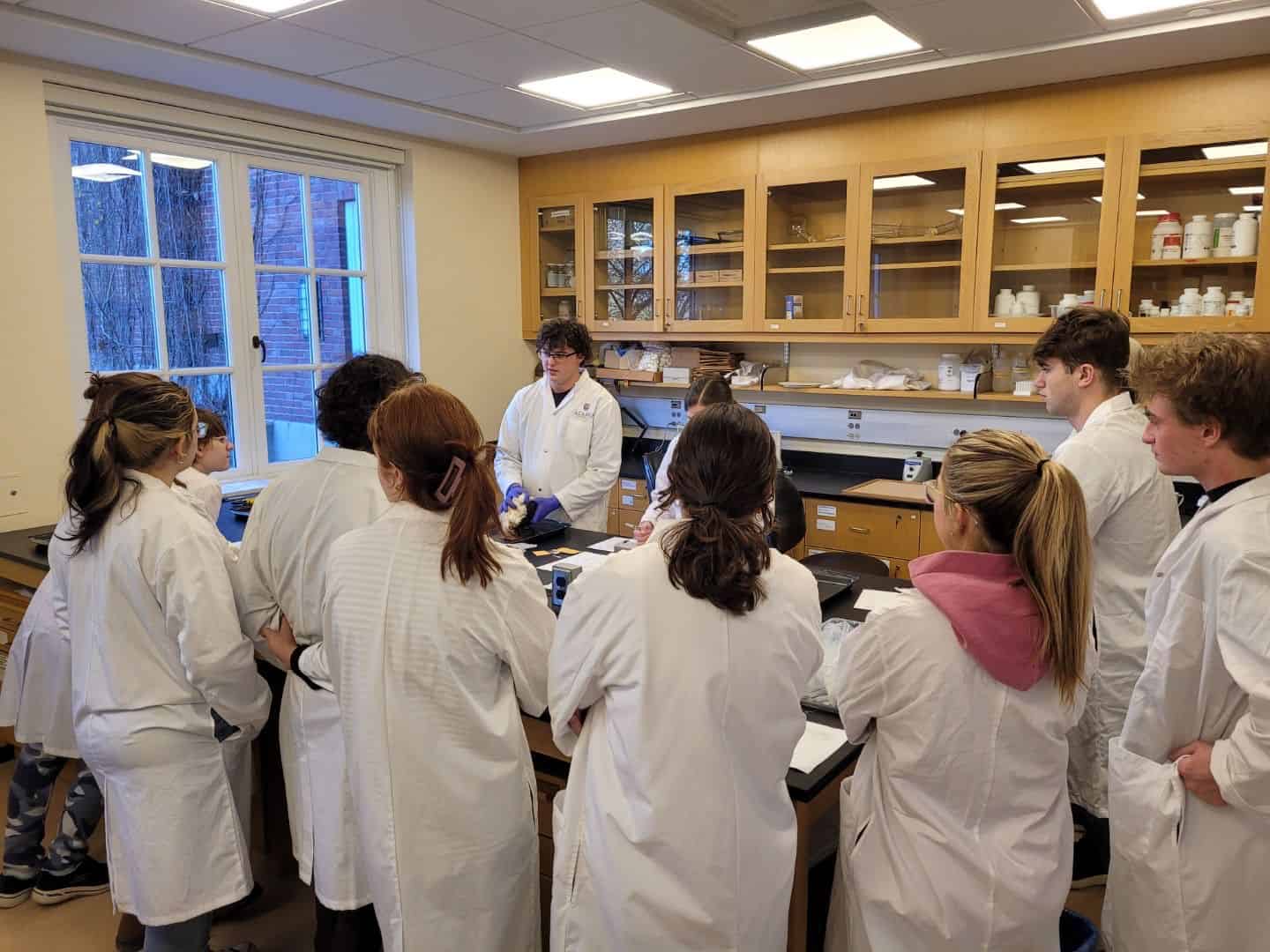
Weekends have recently seen a lot of activity in one of our labs at the K.C. Irving Environmental Science Centre. The Ducks Unlimited Canada Acadia University Campus Club hosted a Seabird Dissection Workshop enabling students to gain hands on skills in environmental biology.
Students selected a three hour timeslot to participate in the lab, learning how to perform dissections on common and thick-billed murres. There was significant demand for spaces in these workshops, across the eight sessions there were 87 participants. The workshop was open to all Acadia students, allowing anyone with interest to try their hand at this aspect of science. Participants were diverse, ranging from first year undergraduate to master’s level and representing many disciplines across campus.
Students shared a range of reasons for their interest in the workshop, from resume building to testing their interest ahead of registering for advanced biology courses requiring dissections. Several participants voiced they were glad for this opportunity as it was filling gaps from the COVID-19 pandemic. Many current undergraduate students were in high school during the peak of the pandemic and missed out on the animal dissections often completed as part of the science curriculum.
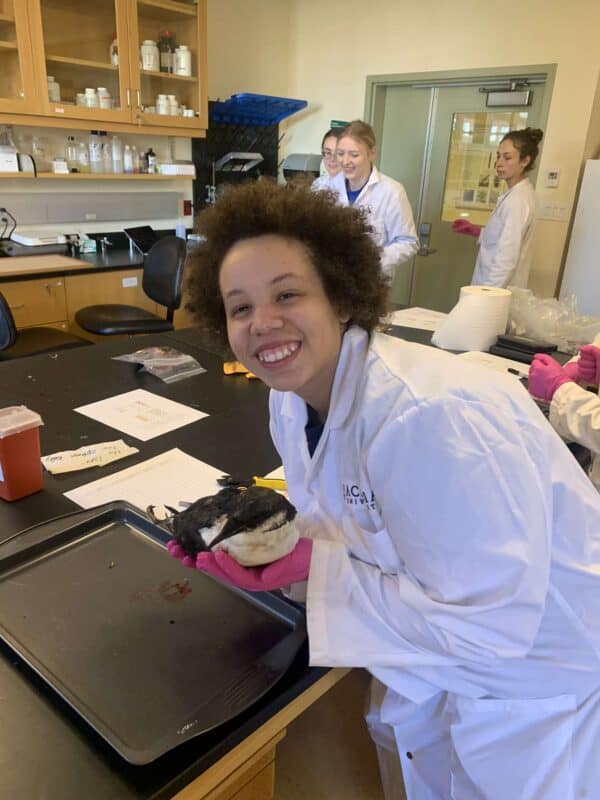
Third year environmental science student Taya Lucas-Desmond says, “I am a general member of the Ducks Unlimited Club on campus. When I saw the social media posts, I knew I wanted to do this event. I love doing hands-on work and getting my hands a little dirty. I wanted to participate in this event to gain some valuable lab experience and to say I had the opportunity to dissect a seabird”.
Taya pictured with a seabird sample.
This event prioritized student learning, though also provided meaningful contributions to science. The seabird samples that were collected will be used for various research projects by Acadia students in Dr. Mark Mallory’s lab and researchers at Environment Canada. The samples will be used to collect data supporting research on seabird contaminants, disease and diet. There are at least five different projects utilizing data from these samples. For example, one project is looking at seasonal variations in the quantity of plastics found in the digestive tracts of Newfoundland murres. Information on the age, sex, and health of the birds is also sent to Environment Canada to support conservation measures and development of murre hunting regulations. Murres are hunted as a food source in Nunavut and Newfoundland and Labrador. Murres are important cultural food for Inuit, first nations, and Newfoundland and Labrador residents.
Mark Maddox, a graduate student in Dr. Mark Mallory’s lab, is the Co-chair of the Ducks Unlimited Canada Acadia University Campus Club and was a key organizer of this event. Mark says, “the amount of student interest and engagement that this event has facilitated is amazing to see! I’m glad that there were so many students that gained skills and positive experiences from this workshop”.
Knowledge transfer between students is an important way to facilitate learning. Taya said, “The instructors, including Mark Maddox for my section specifically, were very helpful and encouraging during the dissection”. The workshop was led by Mark Maddox and co-hosted by Ruby Schweighardt, Kristine Hanifen, Asha Grewal and Gareth Acton, all members of the Ducks Unlimited Campus Acadia University Campus Club.
Mark (right) offering support during the dissection.
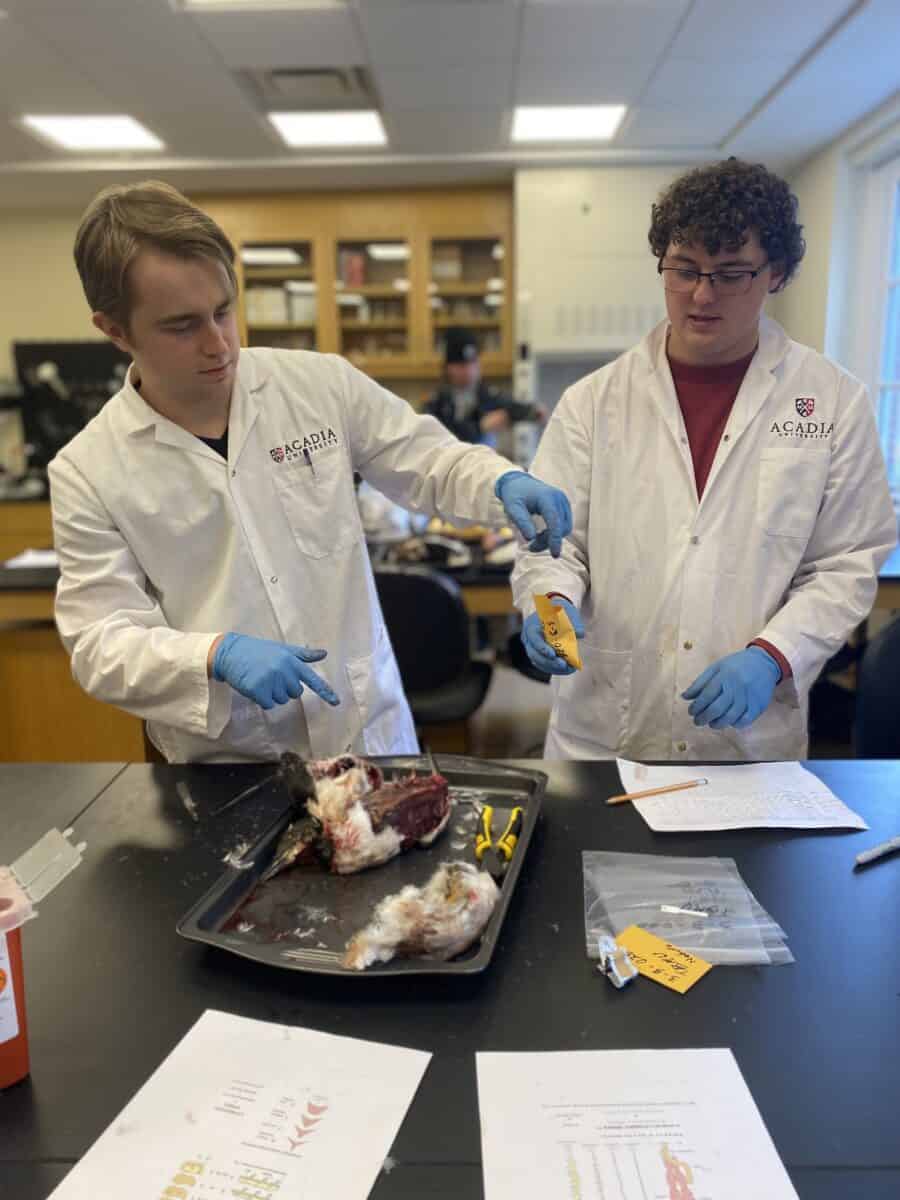
The Ducks Unlimited Canada Acadia University Campus Club is a student-led club at Acadia. Their mission is to educate, conserve and ignite curiosity and care for wetlands, wildlife and biodiversity, while facilitating experiential learning opportunities for students and the community. As Co-chair, Mark says, “the club is looking forward to hosting many future learning opportunities for students. We post opportunities on our Instagram @duc_acadia and we welcome all Acadia students to participate or become members of the club”.
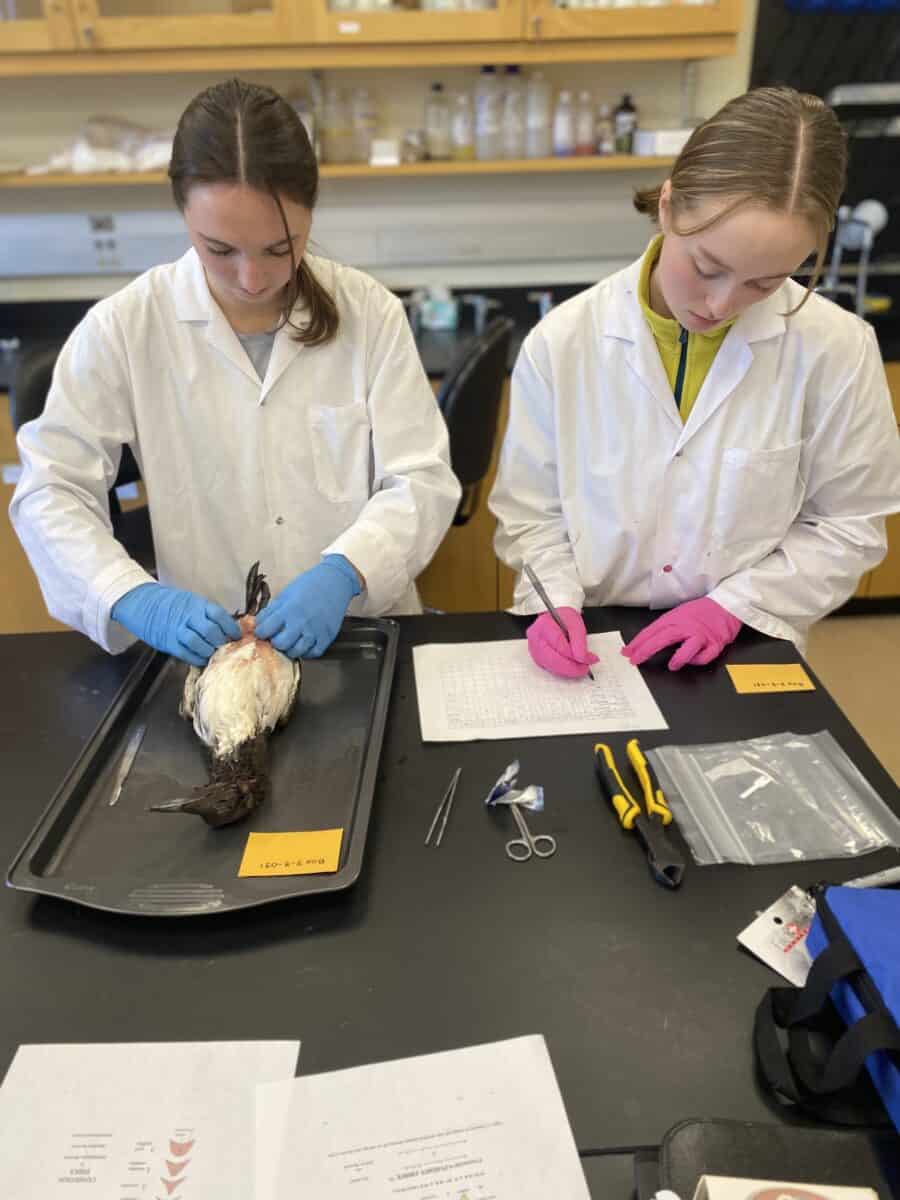
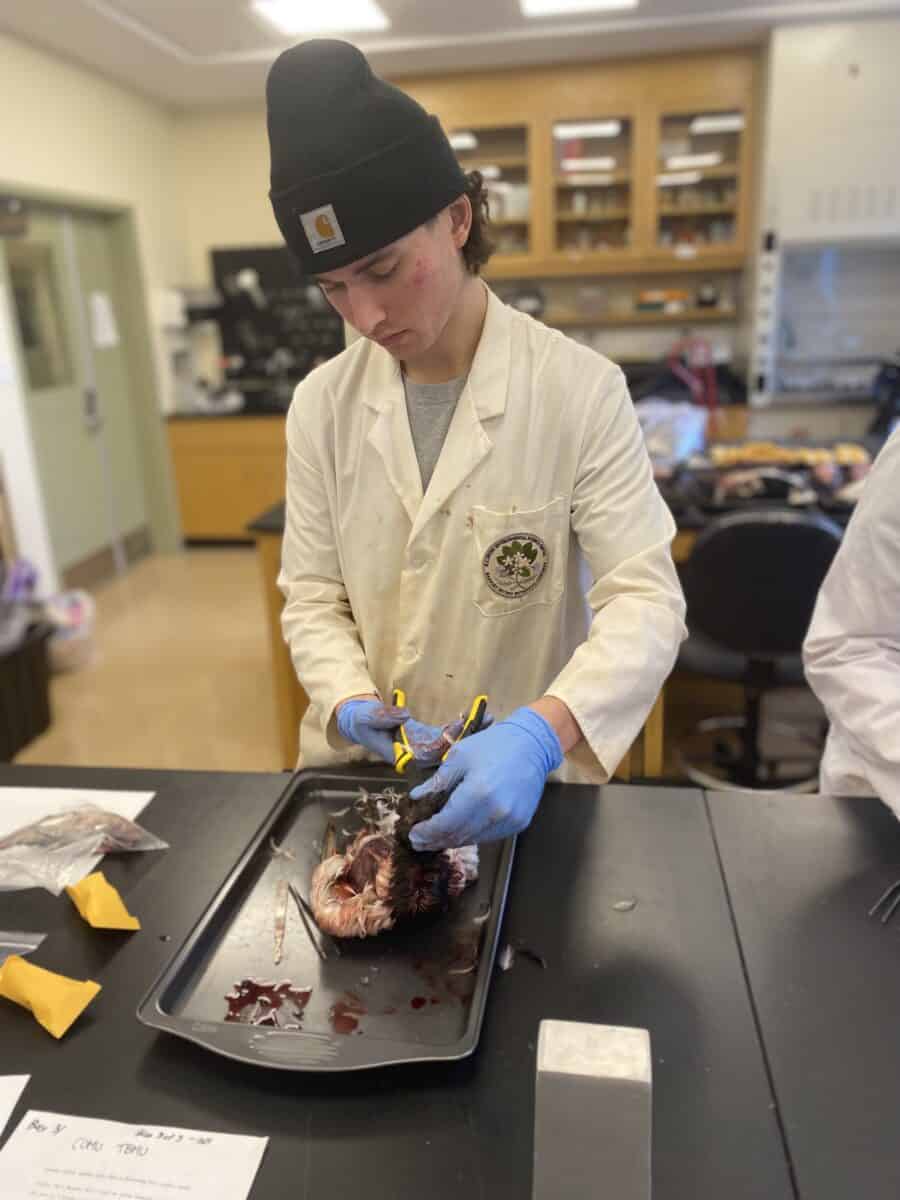
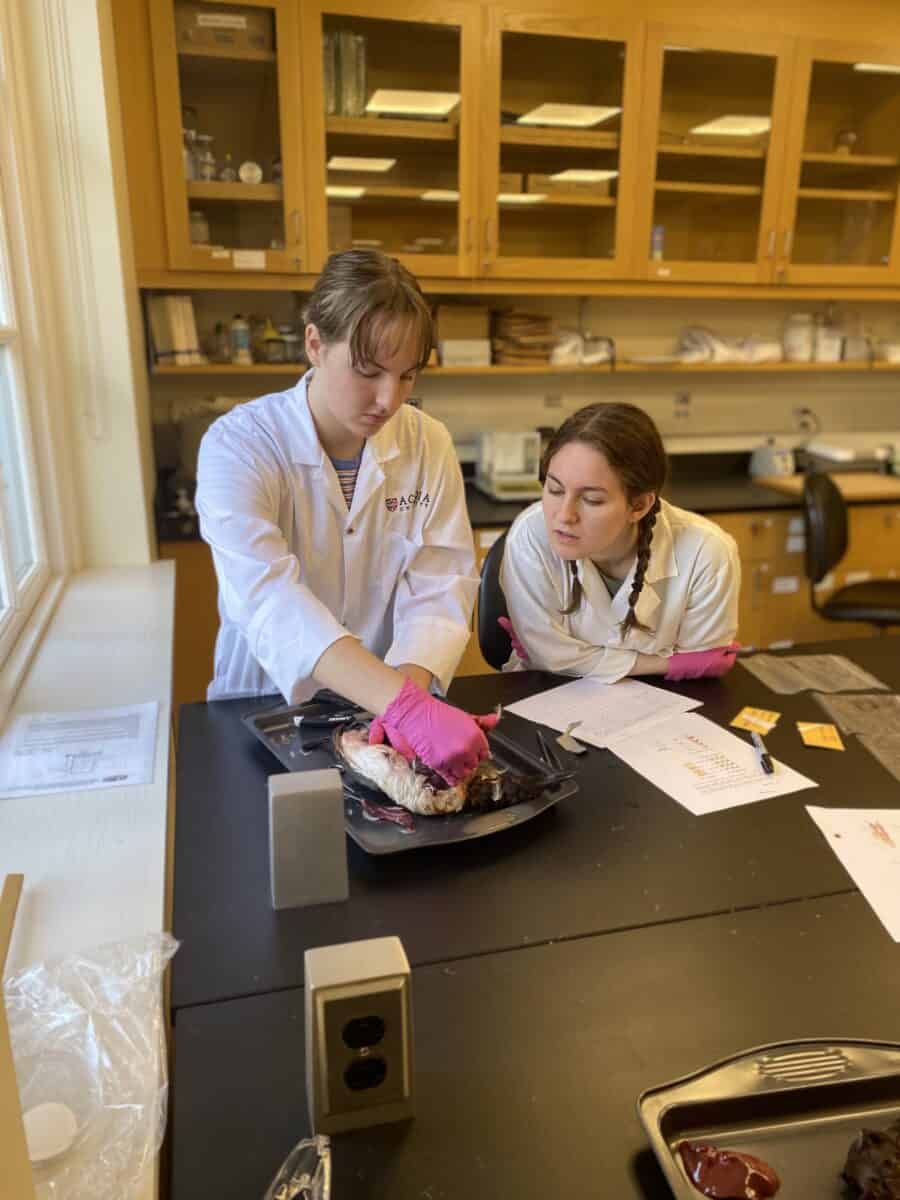
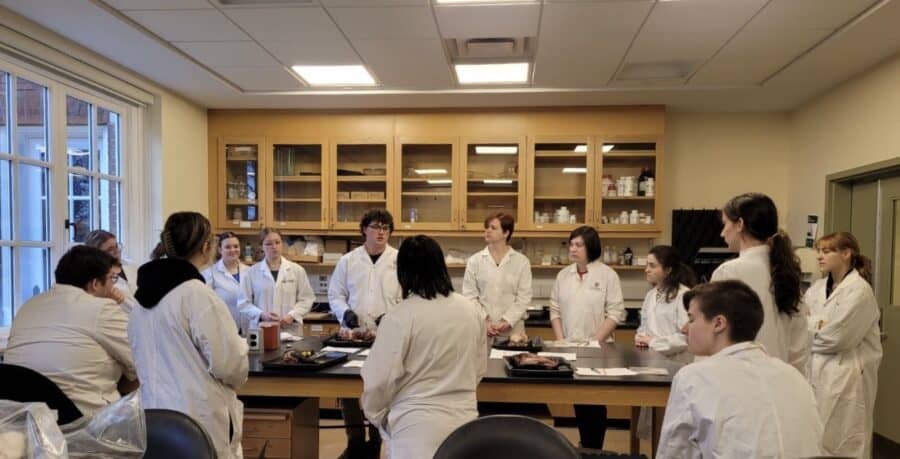
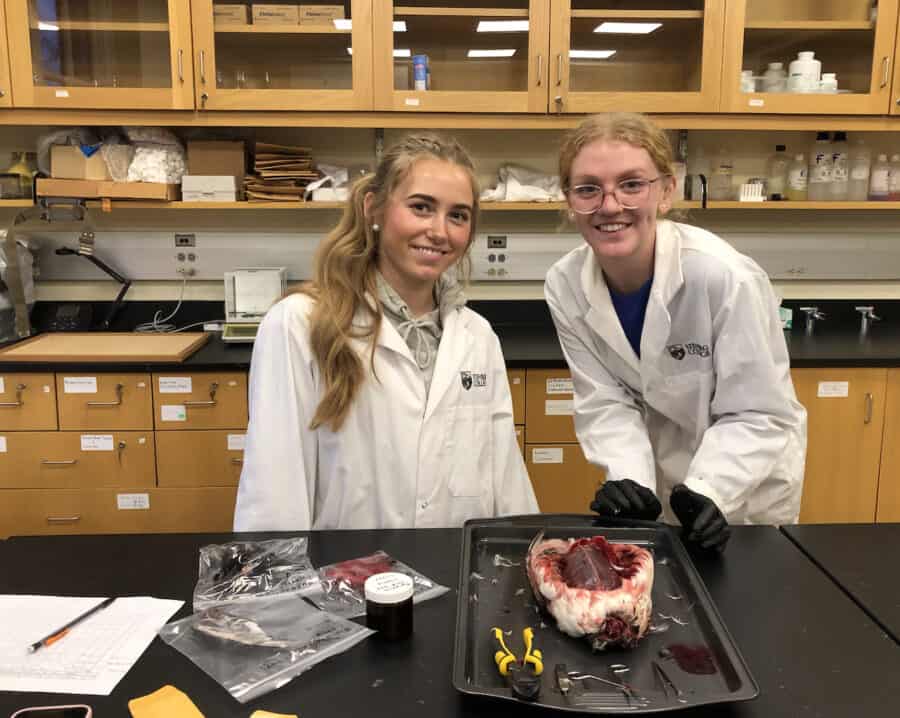
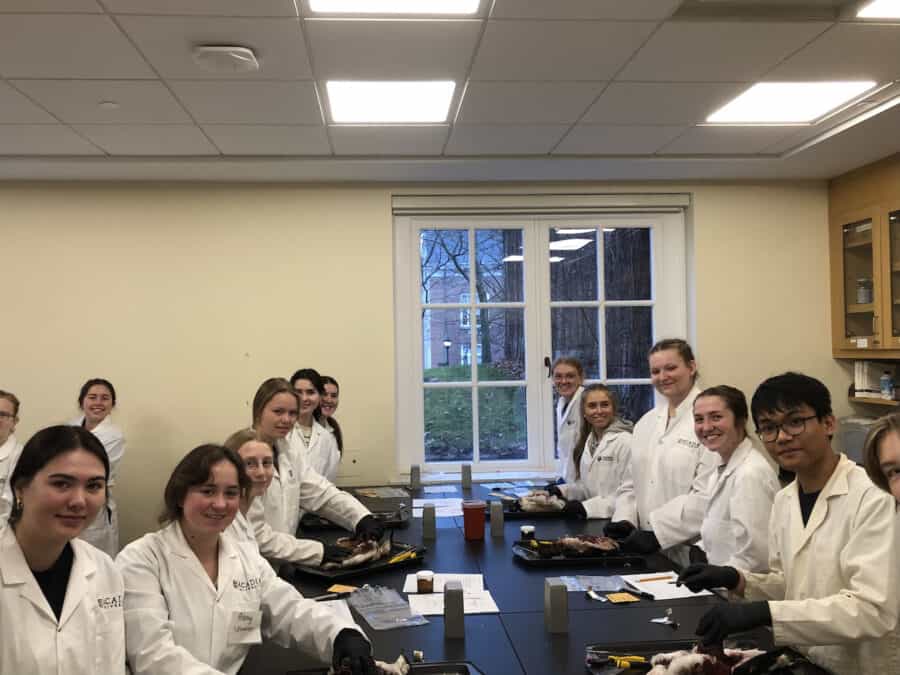
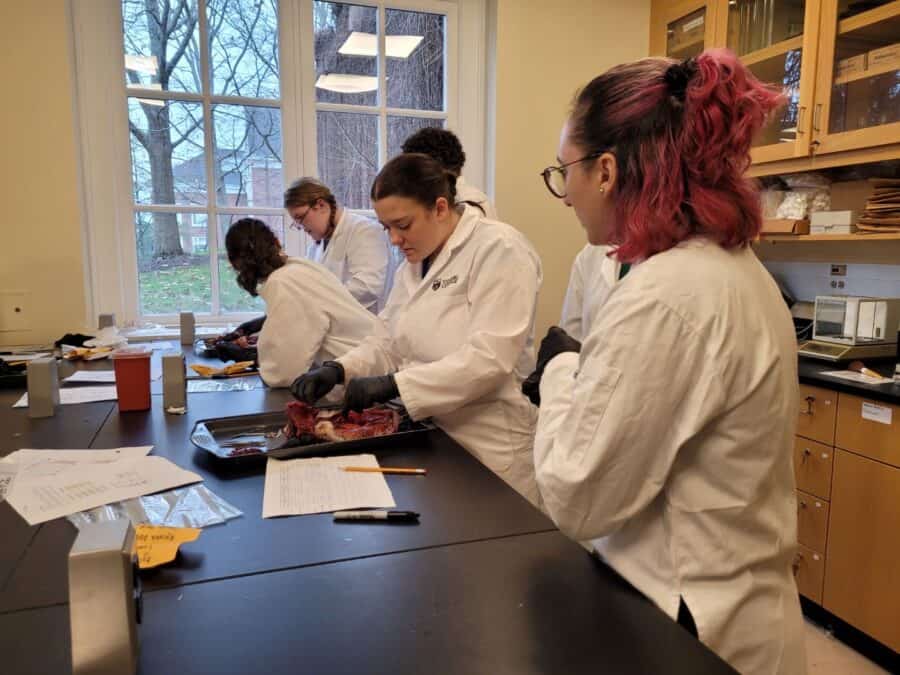
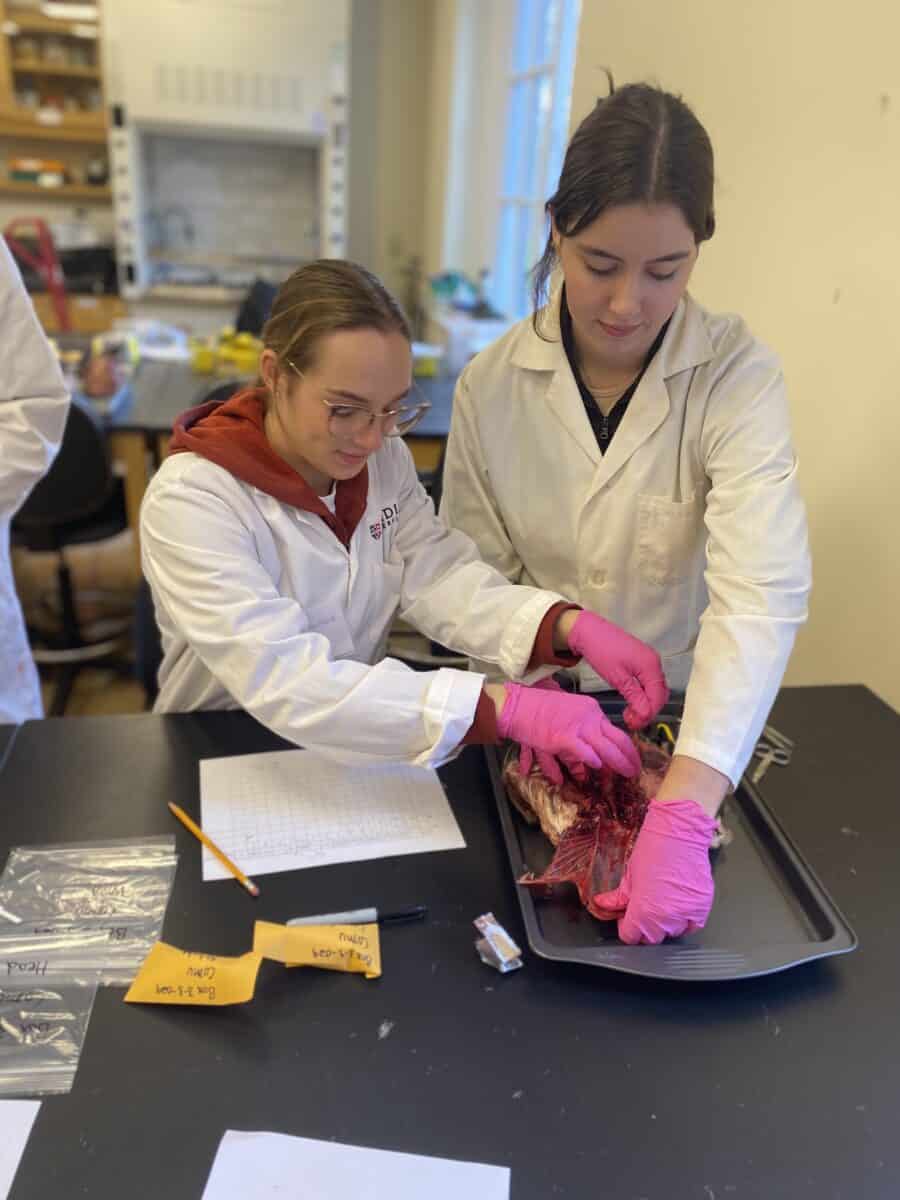
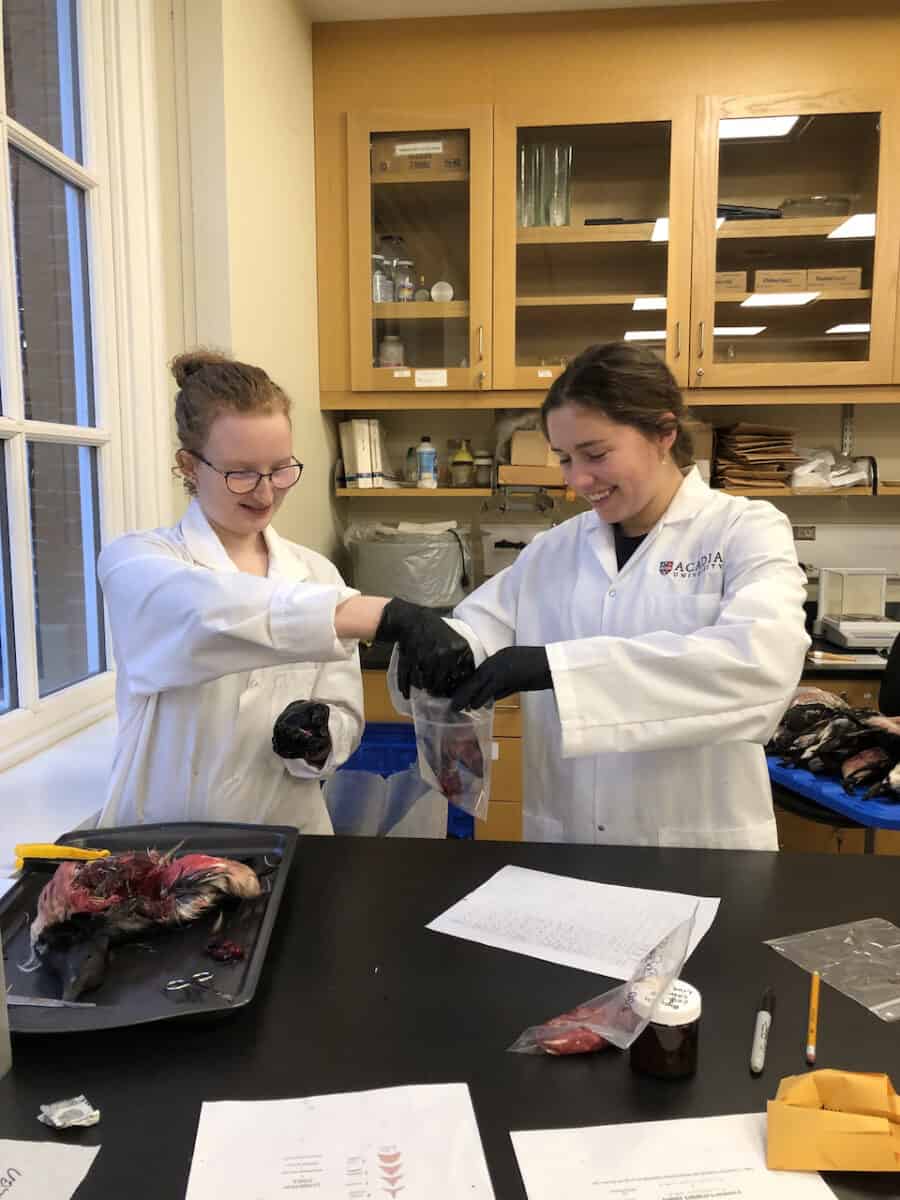
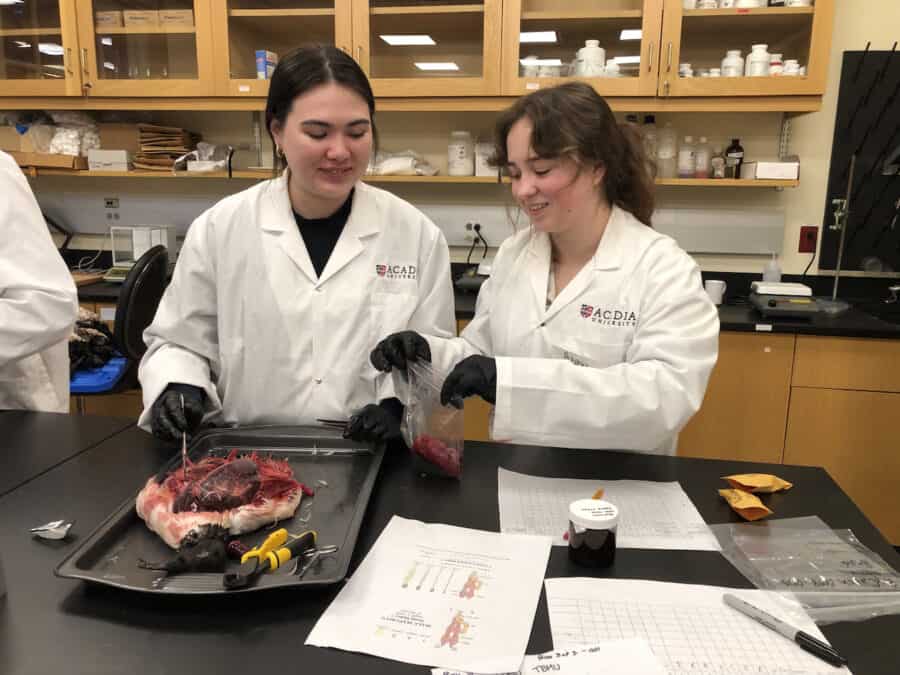
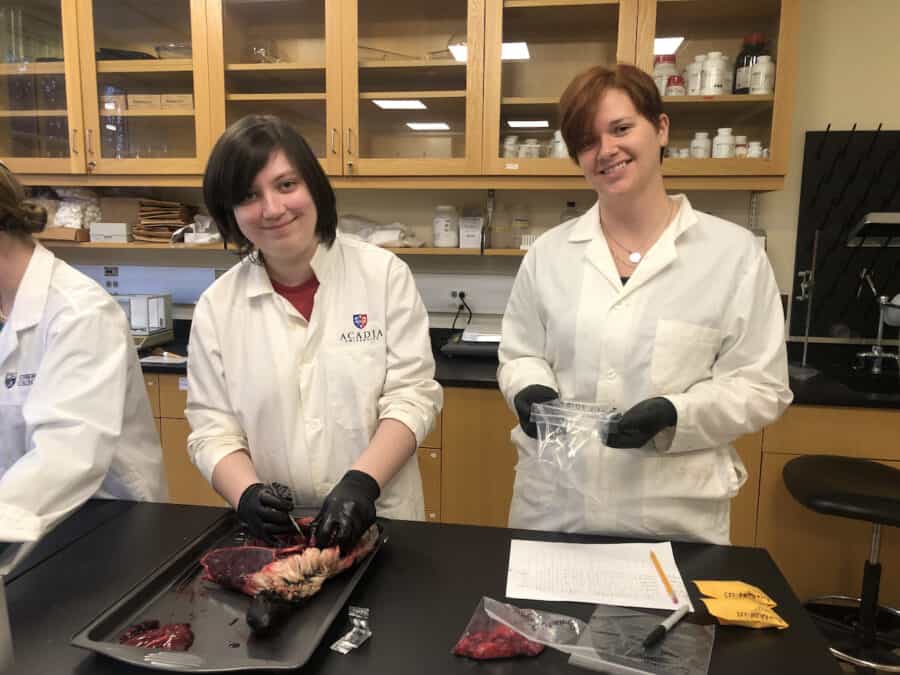
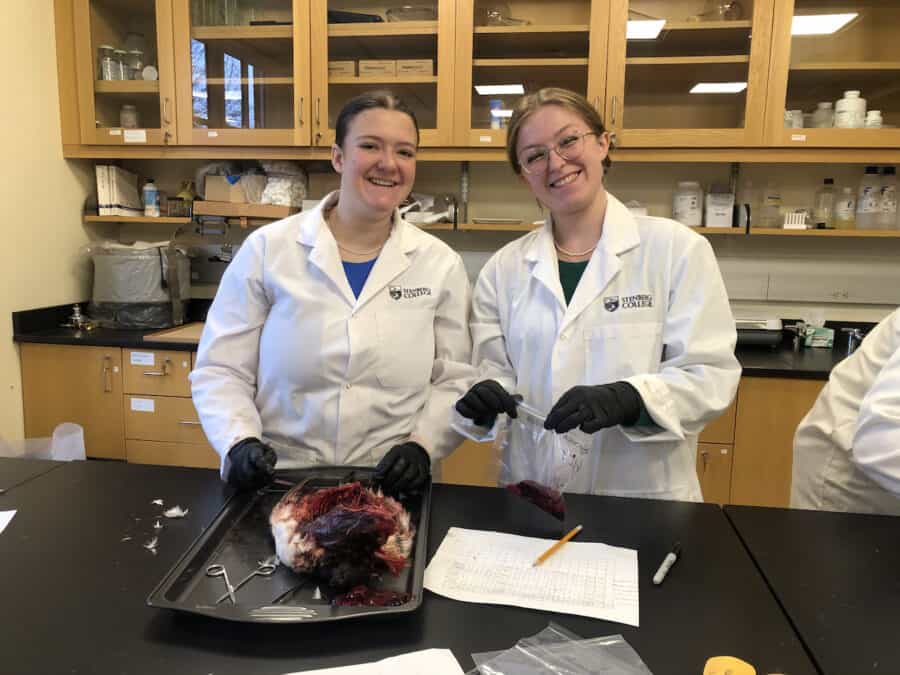


 Acadia University
Acadia University